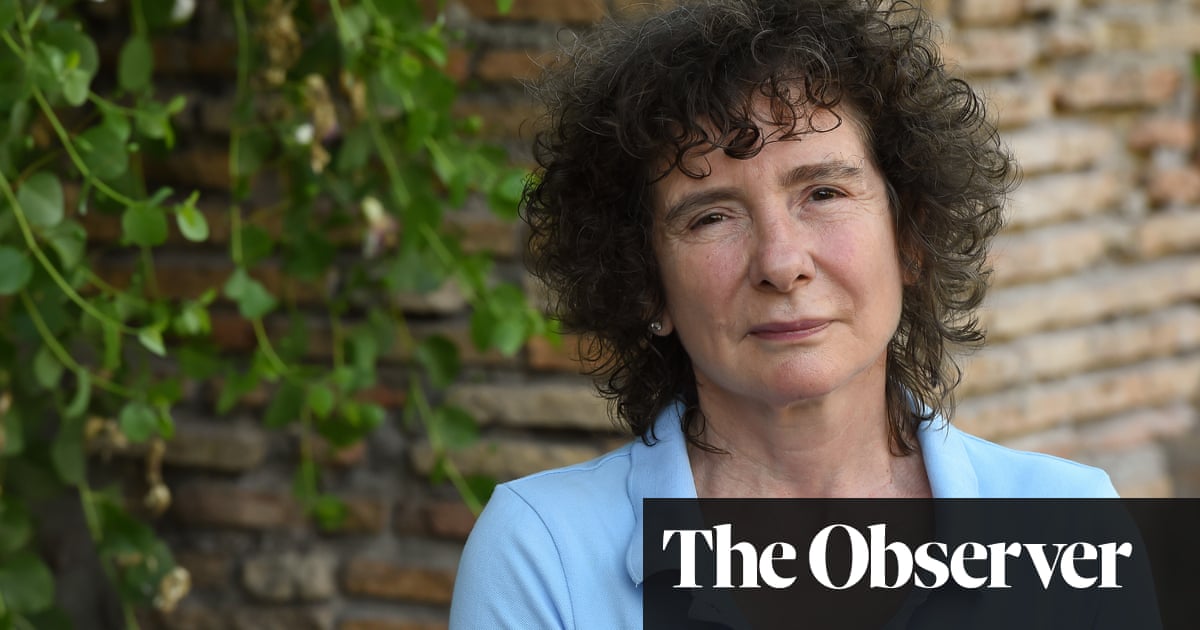
ames in fiction can feel false in their very arbitrariness. “Once you have suffered sufficiently, the idea of making up John and Jane and having them do things together seems utterly ridiculous,” Rachel Cusk memorably observed. The solution among many writers of autofiction is to use their own names. Frances Leviston has found a new and very pleasing answer: each of the central characters in the 10 stories in The Voice in My Ear is called Claire.
This is Leviston’s first work of fiction. She made her name with two books of poetry: precise, delicate poems written with insight and acuity, that can nonetheless feel a little listless because the subjects of their scrutiny often appear remote. When she’s more captivated by her material as a poet – writing about rabbits eating the campus grass with “endless hunger and fanatical devotion” in “Midsummer Loop”, or in the brilliant “High Force” about a journey taken by lovers, “clothed and everything”, to an exuberant river, there’s a novelistic curiosity and a humour that turn out, unsurprisingly, to have a freer play in her fiction.
One of this book"s many triumphs is to leave us questioning what kindness is and what care is
The situations here at first seem refreshingly ordinary. One Claire is a librarian, who goes to Amsterdam to take a break from caring for her mother; one grows up in a B&B and another helps her mother in a care home. What makes the stories extraordinary is the precision of the observation. Leviston’s eye sharpens these everyday middle-class settings until they feel charged with blazing light. Sometimes she’s constructing an artful image, as when Claire the librarian feels she has fashioned her role “like one of those birds who build their nests out of shreds of old carrier bags”, and sometimes she’s just noticing things about people. One Claire has a grown-up brother who frames his Lord of the Rings poster: “That was what growing up meant to Callum. You didn’t put away your childish things – you just paid to get them framed.”
Advertisement
There’s a sheen of fantasy that seems to emerge from the intensity of observation: less magical realism than an investigation of the role of fantasy in everyday life. So, in the powerfully disturbing story set in a B&B, there’s the mother whose children appear to be turning into grotesque puppets, and in the story of Claire the librarian, there’s a robot carer whose endless supply of patience threatens to drive everyone mad (the science-fiction element here is treated entirely matter-of-factly).
The fantastical elements are humorous as well as disturbing. And in several of the Claires, there’s a strain of wilful malevolence that’s always promising to tip into comedy. One Claire leaves detailed accounts of sexual acts in a notebook for her boyfriend to find, while refusing to have sex with him. The most straightforwardly comic story is the joyfully terrible account of Claire the teenage babysitter, whose new boyfriend poisons her charge with the poppy seeds he boils to extract morphine while they watch the parents’ home-made porn videos in the marital bedroom.
Hovering throughout is the question of why all the protagonists have the same name. The Claires provide a through line that allows the book to be something between a short-story collection and a novel, experimenting un-self-consciously with form. It’s because of the shared names that we notice the similarities between these women, who range from adolescence to middle age: most of them are idealistic in their attitude to art and knowledge, but cynical in their views of other people. They are all prepared to be dislikable, sometimes in ways that make them dislikable to the reader. They also share situations: they are all childless, and all burdened with what are described in the blurb as “monstrous mothers”.
Bite-sized: 50 great short stories, chosen by Hilary Mantel, George Saunders and more
Read more
Not all these mothers are straightforwardly monstrous. Most obviously malign is the one who buys new lingerie for her daughter when the teenager has a relationship with her teacher. But most are monstrous because their daughters think they are (the sons are more compliant or better at escaping). Is it really monstrous of the mother in “Broderie Anglaise” to insist on knowing best about the dress her daughter is trying to sew – to let the seam out despite being insistently instructed otherwise?
Perhaps many readers won’t think so, but Leviston takes the Claires seriously in their rage against their mothers. Usually, daughters are told to forgive their mothers because their faults are born of love. It’s a brilliant, bracing move on Leviston’s part to resist this.
There are the mothers who interfere too much and the mothers who don’t interfere enough, presenting a studied obliviousness in the face of their daughters’ pain. “It was Anne who required that every piece of information she received from her daughter be pre-chewed, denatured, made bland and easily digestible,” observes Claire’s sex-denied boyfriend in the dazzling final story. Sometimes we see the daughters from the perspective of the mystified mothers, insistent that these are ordinary families “with an ordinary share of problems, an ordinary share of love”. But the daughters have no patience with the idea of good-enough mothering. And one of the many triumphs of this original, peculiarly truthful book is to leave us questioning what kindness is and what care is, no longer able to take the platitudes of daily life for granted while also unwilling to leave them behind.
• Lara Feigel is the author of Free Woman: Life, Liberation and Doris Lessing (Bloomsbury). The Voice in My Ear by Frances Leviston is published by Jonathan Cape (RRP £16.99). To order a copy go to guardianbookshop.com. Free UK p&p over £15.












